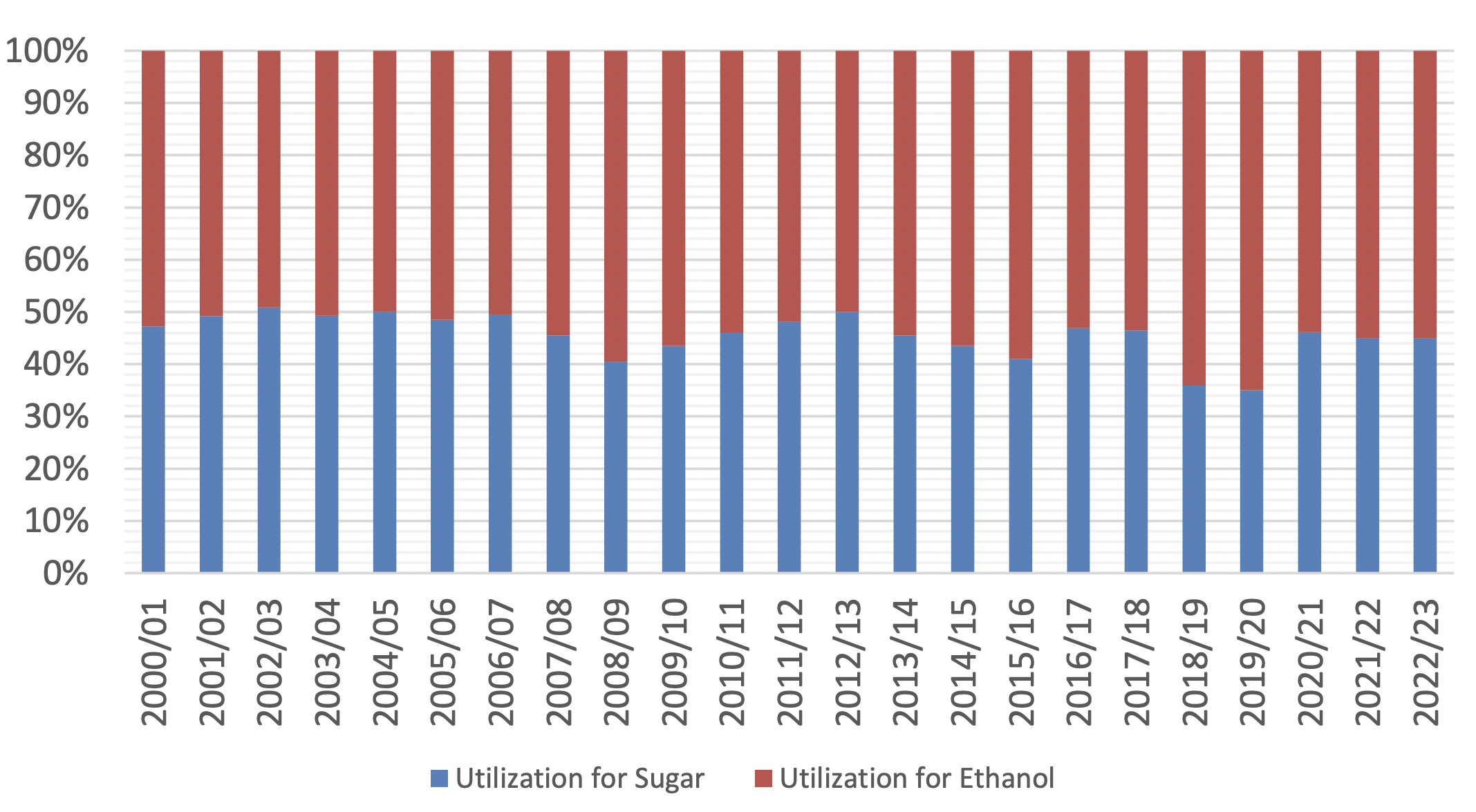Lower Sugar Crushing in Brazil Impacts Global Sugar Prices

At the beginning of the MY 2022-2023 harvest, the total sugar production was 7.19 mt, which corresponds to a drop of 23.64% compared to the previous cycle (9.42 mt). According to the data released by the Sugarcane Industry Union, even the main sugar crushing region of Central South Brazil has fallen in comparison to the previous year. Brazil's center-south is the key region to observe when discussing Brazil’s sugar and ethanol producing capabilities, as it processes 90% of Brazil’s sugar cane. The region crushed about 146 mt of sugarcane in the first three months of the marketing year (MY) 2022–23 harvest. This is a drop of 12.71% compared to the 166.94 mt registered in the same period of the previous harvest. The fall in sugar crushing was recorded due to adverse weather conditions, which affected the states of Paraná and Mato Grosso do Sul in the centre of Brazil, impacting sugarcane production. The sugarcane fields in the region are yet to recover from the weather adversities of 2020 and 2021, including the erratic rainfall and frosts, due to which production has fallen.
Utilization of Sugarcane for Sugar or Ethanol Production

Source: USDA.
The lower availability of sugarcane has also resulted in Brazilian sugar cane mills canceling sugar export contracts and, instead, diverting production to ethanol for the purpose of cashing in on high energy prices. As per an analysis done by Reuters, nearly every company involved in sugar trading in Brazil has seen cancellations. According to the analysis, the total cancellations are estimated at 200,000 to 400,000 mt of raw sugar. With higher ethanol prices and growing demand for biofuel, the world is headed towards a sugar shortage. The majority of the sugarcane crops in Brazil are ethanol-oriented, which would result in lower sugar stocks for domestic consumption and exports. A shortage of sugar in the global market is likely to spike the price of sugar futures contracts in the coming months.
Sugar futures on the Intercontinental Exchange (ICE) rose to 18.6 cents per pound on July 2, 2022, rebounding from the four-month low of 18.2 cents per pound it touched last week. This comes after the release of data that showed sugarcane output in Brazil’s center-south region has been low during the first half of June. In addition to lower production, prices were further supported by lower expectations of sugarcane allocation for sugar production. This expectation came with the reopening of China’s economy, which lifted the outlook for energy demand, incentivizing producers to use sugarcane to distill biofuels by processing it into ethanol. With higher global prices, Brazil has an opportunity to increase its revenue earnings by exporting more sugar. However, there still remains a need for sugar mill processors and traders to weigh the profitability of processing sugarcane into sugar or ethanol.



